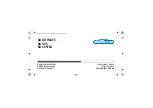
• Color Sector Width: Narrower color sector width will increase color frame rate and the TI
will increase. The system may automatically decrease pulser voltage to stay below the
system maximum. A decrease in pulser voltage will decrease the MI. If PW Doppler is also
enabled, then PW Doppler will remain the dominant mode and the TI change will be small.
• Color Sector Depth: Deeper color sector depth may automatically decrease color frame rate
or select a new color focal zone or color pulse length. The TI will change due to the
combination of these effects. Generally, the TI will decrease with increased color sector
depth. MI will correspond to the MI of the dominant pulse type which is a color pulse.
However, if PW Doppler is also enabled then PW Doppler will remain the dominant mode
and the TI change will be small.
• Scale: Using the scale control to increase the color velocity range may increase the TI. The
system may automatically adjust pulser voltage to stay below the system maximums. A
decrease in pulser voltage will also decrease MI.
• Sector Width: A narrower 2D sector width in Color imaging will increase color frame rate.
The TI will increase. MI will change little, if at all. If PW Doppler is also enabled, then PW
Doppler will remain the dominant mode and the TI change will be small.
M
‑
Mode and Doppler Controls
• Simultaneous and Update Methods: Use of combination modes affects both the TI and MI
through the combination of pulse types. During simultaneous mode, the TI is additive.
During Duplex, the TI will display the dominant pulse type. The displayed MI will be from
the mode with the largest MI value.
• Sample Volume Depth: When Doppler sample volume depth is decreased, the Doppler
pulse repetition frequency (PRF) may automatically increase. An increase in PRF will
increase the TI. The system may also automatically decrease the pulser voltage to remain
below the system maximum. A decrease in pulser voltage will decrease MI.
Other Control Effects
• Imaging Mode Controls: When a new imaging mode is selected, both the TI and MI may
change to default settings. Each mode has a corresponding pulse repetition frequency and
maximum intensity point. In combined or simultaneous modes, the TI is the sum of the
contribution from the modes enabled, and the displayed MI is the largest of the MI values
associated with each mode and focal zone enabled. The system will return to the previously
selected state if a mode is turned off and then reselected.
Biological Safety
Safety
EPIQ 7 User Manual 4535 617 25341
59
Summary of Contents for epiq 7
Page 4: ...4 EPIQ 7 User Manual 4535 617 25341 ...
Page 26: ...Read This First Recycling Reuse and Disposal 26 EPIQ 7 User Manual 4535 617 25341 ...
Page 94: ...DVD RW Drive System Overview System Components 94 EPIQ 7 User Manual 4535 617 25341 ...
Page 154: ...Customizing the System Custom Procedures 154 EPIQ 7 User Manual 4535 617 25341 ...
Page 172: ...Performing an Exam Ending an Exam 172 EPIQ 7 User Manual 4535 617 25341 ...
Page 298: ...System Maintenance For Assistance 298 EPIQ 7 User Manual 4535 617 25341 ...
















































